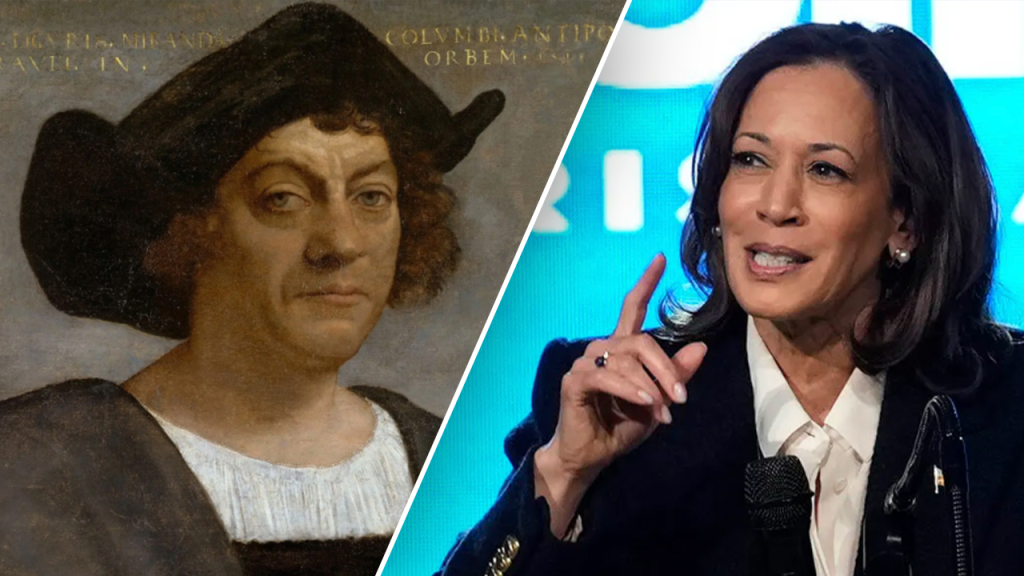The Trump campaign criticized Vice President Kamala Harris for supporting efforts to rename Columbus Day as Indigenous People’s Day, accusing her of wanting to “cancel American traditions.” The campaign’s national press secretary, Karoline Leavitt, claimed that Harris is a typical leftist who wants to raise taxes, defund the police, and erase American history. Leavitt referenced comments Harris made in 2019, where she expressed support for renaming Columbus Day to recognize the impact of slavery, Jim Crow laws, and institutionalized racism in America. Harris also acknowledged the ongoing work needed to address the treatment of indigenous Americans and expressed her support for renaming the holiday.
Columbus Day is a federal holiday that commemorates Italian explorer Christopher Columbus’ arrival in the Americas in 1492, but activists have criticized the celebration for promoting colonialism and the genocide of indigenous people. Some have called for the holiday to be renamed Indigenous People’s Day to honor Native American heritage instead. President Biden was the first to officially recognize Indigenous Peoples’ Day in 2021, signaling a shift in how the federal government acknowledges historical events. States have adopted different approaches to observing the day, with some choosing to celebrate indigenous cultures and others maintaining the traditional Columbus Day name.
Harris, in her role as Vice President, has consistently celebrated Indigenous Peoples’ Day over Columbus Day since taking office. She has emphasized the importance of acknowledging America’s shameful past, including the violent impact of European explorers on tribal nations. Harris believes that shedding light on this history and addressing its lasting effects on native communities is essential for promoting justice and reconciliation. While Harris has not yet responded to the Trump campaign’s criticism of her stance on Columbus Day, her actions as Vice President demonstrate her commitment to recognizing and honoring indigenous peoples’ contributions to American history.
The controversy surrounding Columbus Day reflects broader debates about how to reckon with America’s history of colonialism, slavery, and racism. Activists have called for the removal of Columbus statues and for Columbus Day to be replaced with Indigenous Peoples’ Day to promote a more inclusive and accurate representation of history. President Trump’s campaign accused Harris of wanting to erase American history by supporting the renaming of Columbus Day, framing the issue as a partisan attack on traditional values. Harris’s refusal to back down from her position highlights the ongoing tensions between preserving historical traditions and acknowledging past injustices.
As the debate over Columbus Day continues, it raises questions about how America should commemorate its history and honor the diverse contributions of its citizens. While some view renaming the holiday as a step towards recognizing indigenous peoples’ experiences and combating historical erasure, others see it as an attack on traditional American values and symbols. Harris’s support for Indigenous Peoples’ Day reflects a broader push for inclusivity and historical accuracy in how America celebrates its past. Ultimately, the conversation around Columbus Day serves as a reminder of the complexities of American history and the ongoing efforts to address its legacy of injustice and discrimination.













